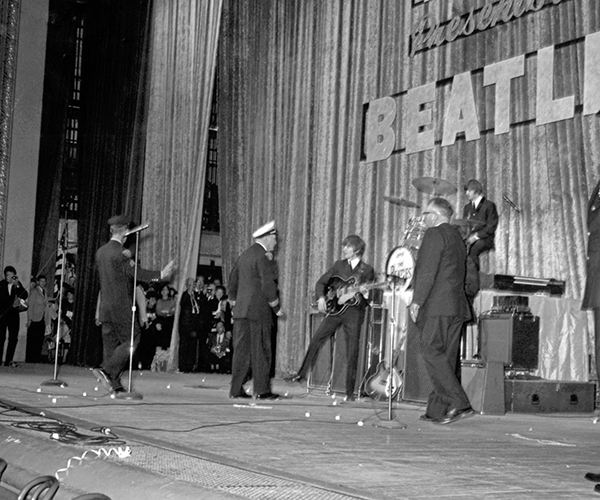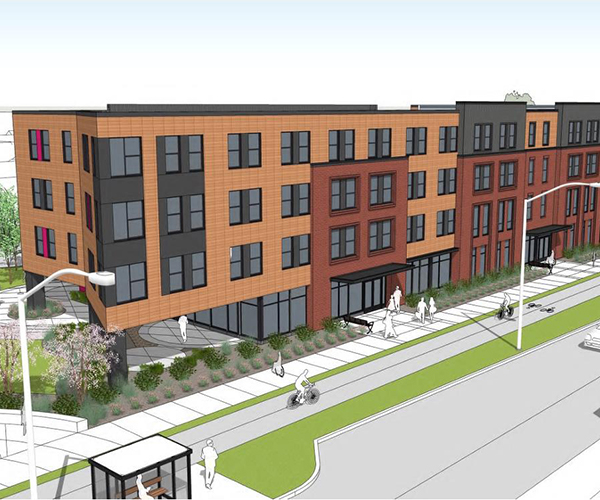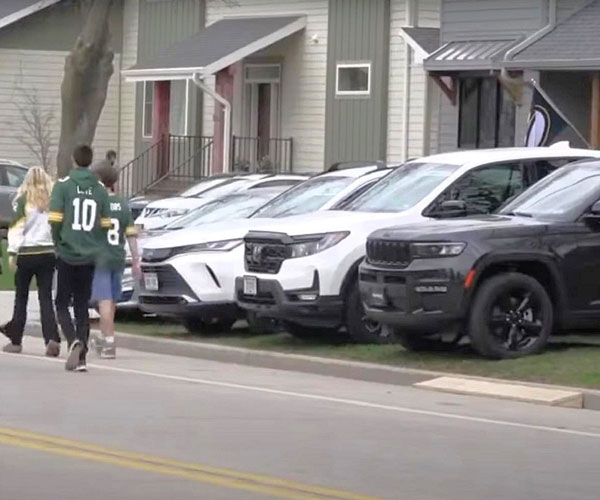I'm not familiar with the house. I go in and find the door to the basement. I know there are other officers coming, so I tell them to keep coming, and I start announcing, “Medina police!”
I draw my gun, open the door and head down the steps to the basement. As I’m walking down the steps, I see articles of clothing, a pair of glasses like they’ve been knocked off somebody’s face. Time is of the essence, so I need to intervene or at least do something quickly.
I’m going down the steps, going down the steps, going down the steps, not knowing what to expect. I could only hear voices, just general voices. If there was yelling, it was muffled.
Before I even left the station, I could tell from the tone of the dispatcher’s voice that it was serious. On the way to a call, you come up with a plan — a plan of action — because when you get there, you’re going to have to act. Obviously, you can’t account for everything, and it’s not like you train for this exact situation, but you know tactically that you park down the street. You don’t want to pull up in front of the house for obvious reasons — in case he would come out of the house shooting, for instance.
I’m thinking,Yes, this is real, this is serious, and I think the quicker I react, the better. You don’t want to rush into a bad situation, but you have to weigh the safety with the circumstances. Based on what I heard, I went in the house. That was my decision.
I know that when the other officers heard me get on the radio and say, “Keep coming,” they knew what that meant. A lot of times in this job, you work a shift with other officers, and by the tone of their voice, regardless of what they’re saying, you can tell that it’s serious and you need to get there. I knew that backup was coming, but I still needed to intervene.
Going down these basement steps is kind of the point of no return. At the bottom of the steps, you’re going to get what you’re dealing with. It’s either going to be the worst-case scenario (with weapons involved) or there’s already some sort of violence other than what was going on, or it’s going to resolve itself somehow.
I’m thinking, This is it. Step by step, still not knowing what you’re walking down into: That’s a little bit hairy. That’s what they pay us to do. It does take a little bit of guts, maybe. Balls, I guess.
I get to the bottom of the steps. OK, nothing. Go around the corner. Still nothing. There’s not much room left down here, so around this next corner, I’m sure I’ll find him. I do. The girl is screaming, trying to get away. There’s a dog barking around my feet.
I’m giving him commands to get off the bed, get down on the ground and get his arms out to the side. I don’t know if he has any weapons on him or near him.
As long as I can see his hands, generally, we’re OK. He isn’t responding to my verbal commands just yet, but at least he’s not making any furtive movements, not reaching for anything, so I can kind of hang out, keep him at gunpoint and wait for the other officers.
At that point, you don’t know what he’s going to do. It’s fight or flight or posture at this point for him. Either he’s going to duke it out, knowing that it’s already a bad situation, and try to get away, or he’s going to comply with my orders.
Eventually, two other officers arrive, and I handcuff him on the bed. My role was easy compared to what the girls went through. You have a certain state of hypervigilance as a police officer. It’s not paranoia. It’s my job.
I draw my gun, open the door and head down the steps to the basement. As I’m walking down the steps, I see articles of clothing, a pair of glasses like they’ve been knocked off somebody’s face. Time is of the essence, so I need to intervene or at least do something quickly.
I’m going down the steps, going down the steps, going down the steps, not knowing what to expect. I could only hear voices, just general voices. If there was yelling, it was muffled.
Before I even left the station, I could tell from the tone of the dispatcher’s voice that it was serious. On the way to a call, you come up with a plan — a plan of action — because when you get there, you’re going to have to act. Obviously, you can’t account for everything, and it’s not like you train for this exact situation, but you know tactically that you park down the street. You don’t want to pull up in front of the house for obvious reasons — in case he would come out of the house shooting, for instance.
I’m thinking,Yes, this is real, this is serious, and I think the quicker I react, the better. You don’t want to rush into a bad situation, but you have to weigh the safety with the circumstances. Based on what I heard, I went in the house. That was my decision.
I know that when the other officers heard me get on the radio and say, “Keep coming,” they knew what that meant. A lot of times in this job, you work a shift with other officers, and by the tone of their voice, regardless of what they’re saying, you can tell that it’s serious and you need to get there. I knew that backup was coming, but I still needed to intervene.
Going down these basement steps is kind of the point of no return. At the bottom of the steps, you’re going to get what you’re dealing with. It’s either going to be the worst-case scenario (with weapons involved) or there’s already some sort of violence other than what was going on, or it’s going to resolve itself somehow.
I’m thinking, This is it. Step by step, still not knowing what you’re walking down into: That’s a little bit hairy. That’s what they pay us to do. It does take a little bit of guts, maybe. Balls, I guess.
I get to the bottom of the steps. OK, nothing. Go around the corner. Still nothing. There’s not much room left down here, so around this next corner, I’m sure I’ll find him. I do. The girl is screaming, trying to get away. There’s a dog barking around my feet.
I’m giving him commands to get off the bed, get down on the ground and get his arms out to the side. I don’t know if he has any weapons on him or near him.
As long as I can see his hands, generally, we’re OK. He isn’t responding to my verbal commands just yet, but at least he’s not making any furtive movements, not reaching for anything, so I can kind of hang out, keep him at gunpoint and wait for the other officers.
At that point, you don’t know what he’s going to do. It’s fight or flight or posture at this point for him. Either he’s going to duke it out, knowing that it’s already a bad situation, and try to get away, or he’s going to comply with my orders.
Eventually, two other officers arrive, and I handcuff him on the bed. My role was easy compared to what the girls went through. You have a certain state of hypervigilance as a police officer. It’s not paranoia. It’s my job.



